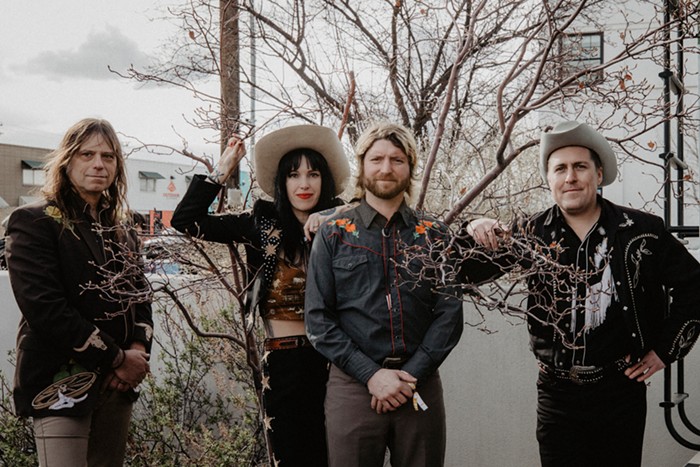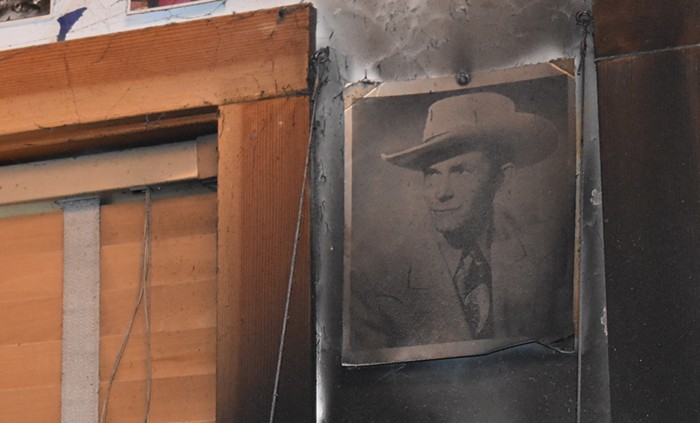THE YEAR IS 1995. Timothy McVeigh and Terry Nichols bomb the Alfred P. Murrah Federal Building in Oklahoma City. OJ Simpson is acquitted for double homicide. And a little band based in Portland, Oregon, release their major label debut, Sparkle and Fade.
In the 20 years since, the country has obviously changed, but few American cities have changed quite as drastically as Portland. When a young Art Alexakis relocated to Portland from California (an early pioneer of California transplants), the city was in its post-Drugstore Cowboy days—there was no dream of the '90s, it just was the '90s. After a limited run in 1993 of their first album, World of Noise, by the long-defunct Portland label Tim/Kerr Records, Alexakis' band Everclear released Sparkle and Fade on Capitol Records in May 1995. The album was eventually certified platinum, largely owing to the made-for-radio single "Santa Monica."
As a result, Alexakis became one of the closest things Portland had ever had to a bona fide rock star. But this isn't, and wasn't, a city that takes kindly to rock stars. Whether it was his unabashed need for fame and success, his bleached-blond Southern California hair, his perpetual soul patch, the creepy little "yeeah" that he does on every song, or his unfavorable reputation, Portland never fully embraced Alexakis or Everclear. In 2009, this very paper called Alexakis "the most hated musician in Portland," beating out potential contenders Courtney Taylor-Taylor and Isaac Brock. But after two decades of career troubles, financial troubles, marital troubles, and countless former band members, Alexakis is still at it, organizing nostalgia tours with other largely forgotten '90s bands, and putting out new but largely forgettable Everclear records. Now that he's bringing the Sparkle and Fade 20th anniversary tour to the city where it was conceived, it's worth asking what relevance this album has in 2015.
Everclear was an alternative rock band back when "alternative rock" was a thing. Many of the hundreds of albums released during this lost decade were dull, derivative, and disposable. But Sparkle and Fade was—in spite of the subject matter of its songs—fun. The melodies and choruses were catchy and memorable, all you could really ask for from a pop song. Alexakis has sustained a career with songs about drug addiction, broken families, and damaged women, but in 20 years he has yet to recapture the front-to-back brilliance of Sparkle and Fade. It remains proof that, at one point in time, Alexakis was—god help me—a good songwriter.
The opening track on the album, "Electra Made Me Blind," is also the heaviest; it is, in fact, so heavy it makes you wonder just what the fuck Electra did to poor Art's eyesight, but in the next song, "Heroin Girl," he introduces us to Esther—with the two pierced nipples and the black tattoo—and we've already forgotten about old Electra. Though he composed Sparkle and Fade in Portland, Alexakis makes only one passing reference to his adopted city, in "Strawberry," when he sings about copping heroin in Old Town. Perhaps that's part of the reason why Portland never accepted him; it never really felt like he accepted Portland.
What influence has the album had on Portland's musical evolution, though? How would the city's musical and cultural landscape look if Sparkle and Fade had never happened? Likely no different at all. Unlike the OKC bombing or the OJ Simpson trial or the launch of Windows 95, Sparkle and Fade seems to have had no lasting cultural influence. It has done exactly what its title said: It sparkled, then faded.
Fairly or not, history has been less than sympathetic to Alexakis. But when he and his latest band of hired guns stand on the Wonder Ballroom stage, and he plays that opening riff to "Santa Monica," the last 20 years will drop away, and everyone in the audience, whether Portland born and raised or newly transplanted, will find themselves singing along.



















